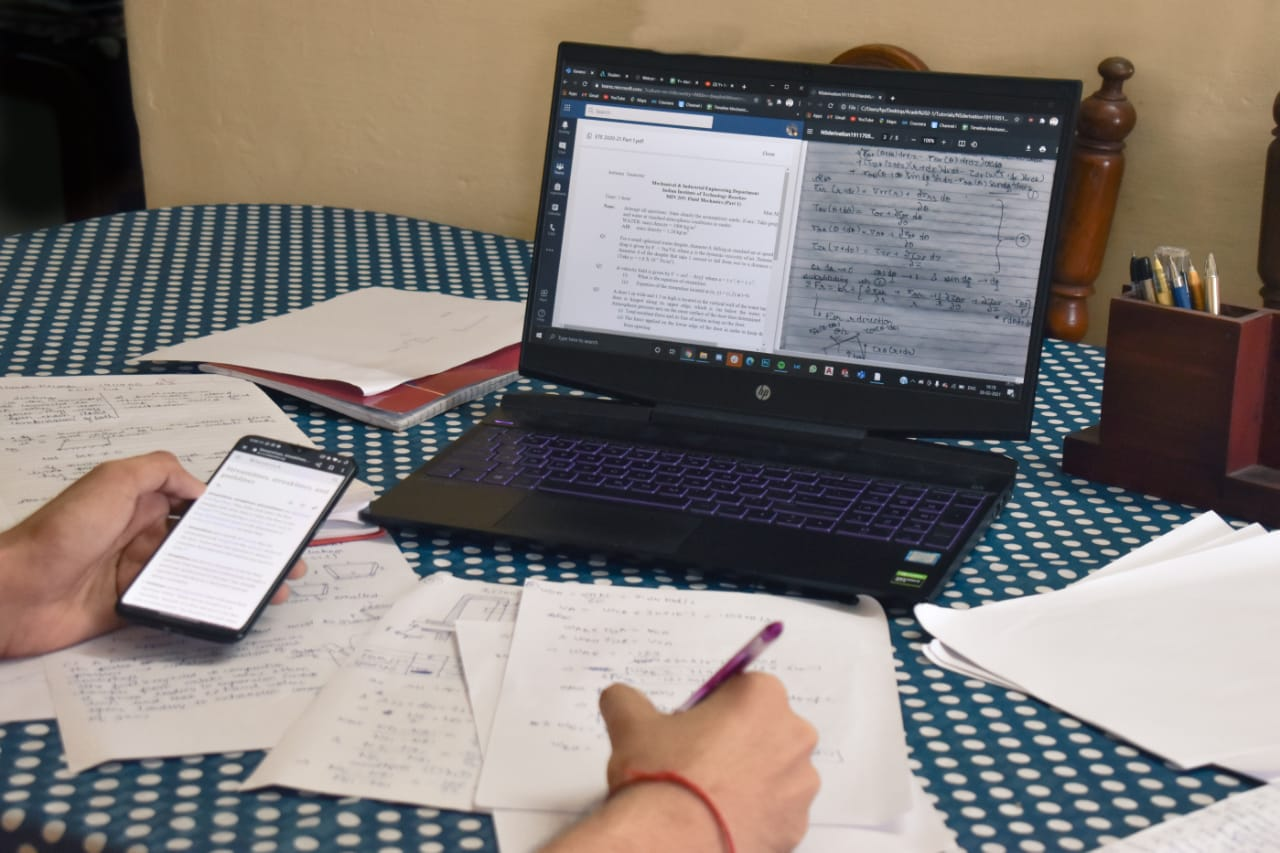

Body of IITR

A glance at the conduction and experience of students during online end term examinations
The previous online semester was a rough ride for a majority of students. The online ETEs that followed amplified some of the problems that were experienced along with adding a few of their own. The primary issues of sustained internet connection requirements, complex proctoring schemes and the overall communication gap between the examiners and examinees, failure to prevent malpractices and imperfect CWS evaluation plagued the End Term exams. Watch Out! attempts to document this little-sweet-but-mostly sour experience students had. We reached out to students from every department and have tried to cover several issues revolving around online ETEs.
Each branch faced its share of problems. Firstly, some branches were not informed of the specific proctoring methods to be used in some exams until the very last moment. This prevented them from keeping their systems ready for online proctoring. Some of the proctoring methods used specific software that had to be downloaded beforehand, leaving the students to manage all of this at the last minute.
Many courses had rigid submission deadlines. Students were expected to attempt the paper, then scan and upload the answer sheets during a buffer time of as short as 5 minutes given after the exam. Students facing issues in uploading their scanned answer sheets due to poor internet connection went through great hurdles to not exceed the deadline. Sometimes their connection was so slow that it was practically impossible to upload an entire answer sheet. At other times a complete loss in connection kicked them from the online end term meetings which could have stirred up some trouble with the TAs. More than a few times students were unable to finish the upload on time, and professors had to keep extending the deadline. This extended the entire length of the paper, sometimes by even an hour. Some courses had the paper divided into multiple modules which the students had to do in the stipulated time. Students had to scan and upload each module individually which was quite a tedious and stressful task given the time crunch.
Many students were faced with unusually lengthy papers. The reasoning behind this was apparent. Longer exam papers meant lesser time to attempt those exams, thus lesser time for the students to indulge in malpractices. Many branches were given papers equally long as the past offline ones to be solved in an hour less. However, this measure did leave its share of adversities. Even attempting, let alone solving all the questions, was a herculean task. This played a massive role in exponentially increasing the stress and anxiety the students were experiencing. It can be quite demotivating when one fails to attempt even half of the paper, which was the case with quite a few students.
The division of CWS marks was also quite unclear in most courses due to a lack of communication. Many branches saw attendance being used as a metric for grading, something that was forbidden by the directives of the senate. A clear disparity in the marks distribution was especially apparent in the courses common across multiple branches, where different branches saw different grading parameters which were decided by the professor who taught those batches. Some branches ended up scoring quite high CWS marks giving them an unfair advantage in the final grades awarded. This disparity is compounded by the fact that in almost every case, corrected answer scripts were not shown for review.
Not being able to concentrate during an end term paper due to external factors is quite easily any student’s nightmare. In a lot of courses, professors or TAs instructed all students to unmute themselves and have their webcams switched on.While this theoretically made the exam as close to the exam hall as possible, the problem is that a pin-drop silence cannot be enforced at home and electronic media is the culprit here. Thus various sounds, like construction or cooking noises, were audible to all examinees. Along with it, electronic communication often causes distortions in sound, which are amplified in the case of a poor internet connection or some other technical issue. The combination of both factors caused a lot of unpleasant background noise, which could easily break anyone’s concentration. It greatly affected the performance and bothered quite a few people.
The institute spilled a lot of ink (in theory anyway) in order to come up with fail-safe policing techniques for the institute’s first ever online exams. The use of webcams and in-built microphones was labelled a necessity, but as is the case with most decisions made by the institute lately, there was not much theoretical basis for this argument. In an educational system where the thought of honour codes and take-home exams is met with mockery, it is safe to say that the effectiveness of these “fail-safes” as a means of deterring plagiarism is disputable. Of course we can not deny the fact that these policing techniques help the faculty members sleep a little easy at night, but questions have to be raised regarding their expected impact being incommensurate to the painstaking reality.
While there are multiple issues that people faced, some branches reported positive experiences with the professors too. Many professors were cooperative in terms of proctoring, network and other issues and offered help wherever needed. After students voiced their concerns, post the release of institute guidelines, many professors changed their proctoring schemes to something that allows for smoother working for all examinees. Most were okay with students just using the video camera for the exam period, allowing students with poor internet connectivity to attend the exams without disruptions.
Some conducted open book exams, allowing examinees to refer to the internet and books for solving their questions. Some were even allowed to talk to other examinees. Students with network issues could contact professors directly. When they provided relevant proof, professors would duly take care of such students. The professors’ positive and cooperative response is probably what allowed for no catastrophic issues to spring up in the end semester exams.
Notwithstanding the myriad of problems we all faced this semester, the end term exams were held, although begrudgingly.
Given that the online semester had a significant impact on the mental health of students, many of them were not actually able to perform at their best. The sudden performance boost of their peers and the results of their exams just added to their pre-existing anxiety of the semester, which just made the experience all the more bitter for a lot of people. From technical difficulties due to the lack of familiarity with new pieces of technology to multiple external factors that were clearly out of a student’s control, the online End Term Exams were a genuinely unpleasant experience that left both professors and students rather confused.
We did try our best to cover all of the issues but we could not include every specific detail in order to keep the article crisp. Feel free to reach out to us in order to follow up with this discussion.